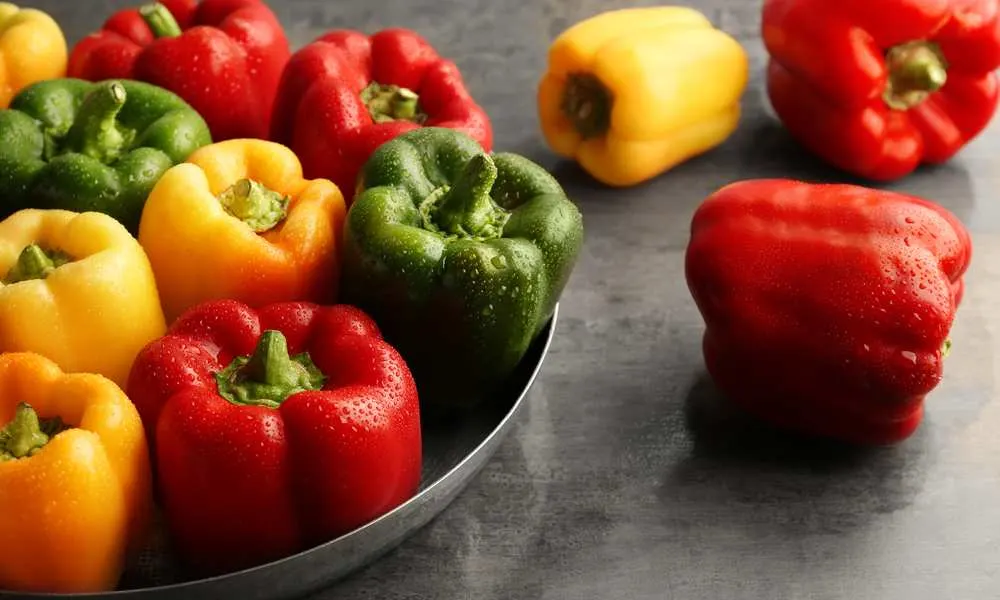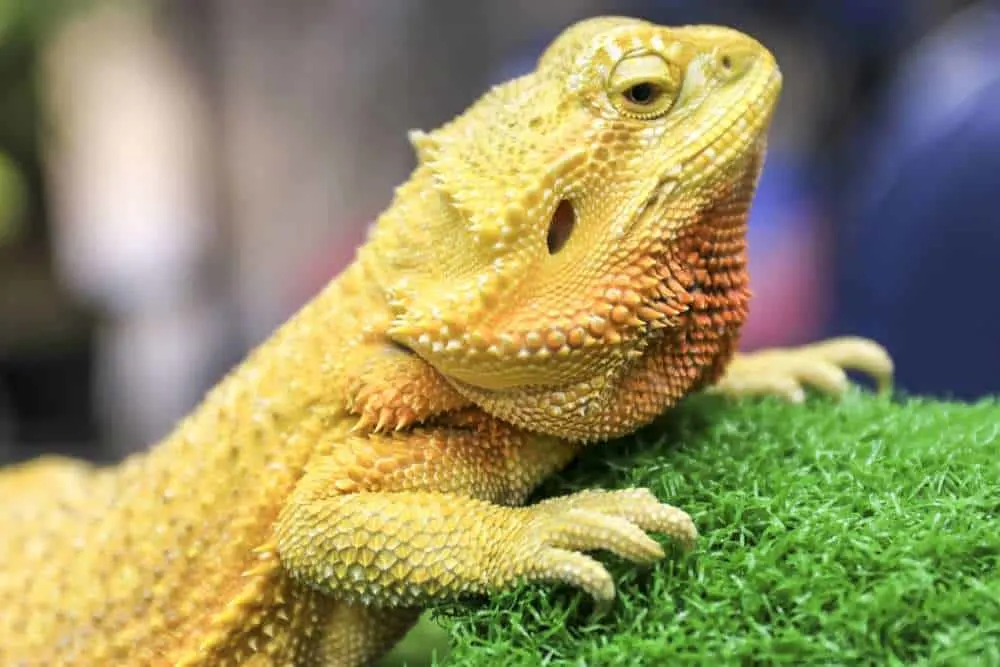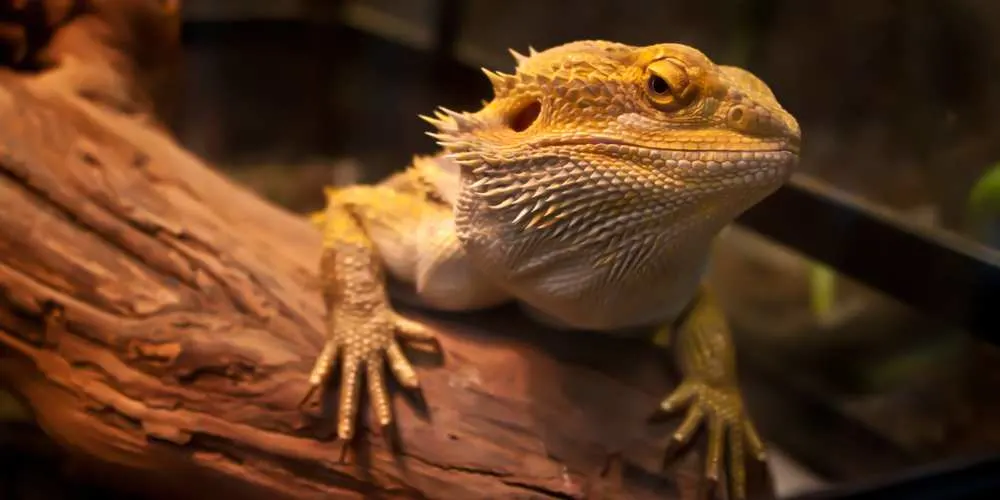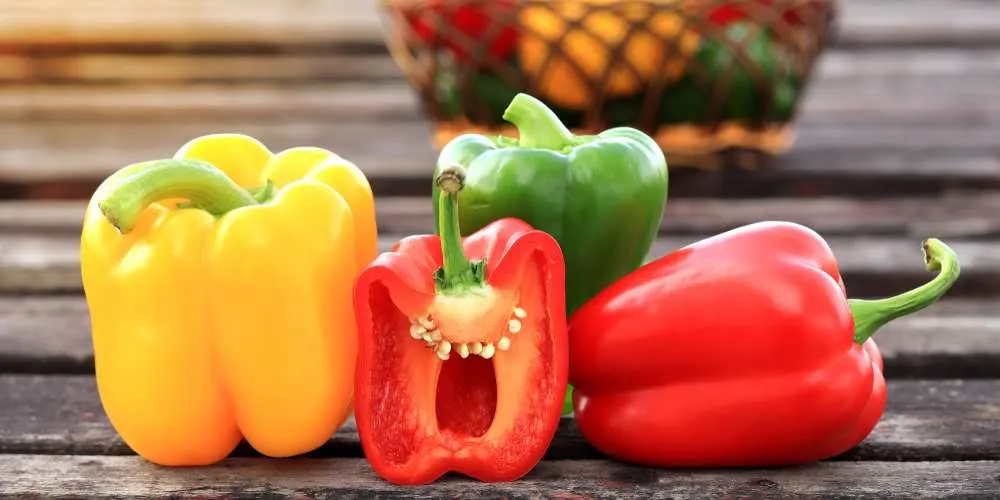When you say that you have a bearded pet dragon, you may hear people say many things. They fall into the “exotic” pet group, so there’s a kind of aura of mystery around them.
One of the questions you will, without a doubt, run into is the “what do bearded dragons eat?“.
We get it; it can seem like they need some special diet that no other animal could handle! But the truth may be a bit more mundane than that. Us beardie folk know that these beautiful animals eat a simple combination of meat and veggies.
This can be a bit overwhelming though – if that’s the case, can I feed them whatever I have in the fridge? Well, we don’t know what you have in the fridge, but we’ll answer our question of the day: Can Bearded Dragons eat bell peppers?
This is a staple vegetable, and you probably have some lying around, so why not feed it to your dragon? Don’t worry; we’ll explain everything. Peppers can be very healthy, that’s a fact. But they can also be a kind of a risky threat for your scaly friend. So are they good or bad for your pet? Let’s find out.

Can Bearded Dragons Eat Bell Peppers?
Let’s get a clear and straightforward answer out here right away: YES, your bearded dragon can eat bell peppers. But how much and when? Well, that art is a bit more complicated.
As we already mentioned, a bearded dragon’s diet consists of meat and veggies. At least that’s what one part of the community thinks. The claim is that they need at least 70% of their diet to consist of insect meat.
This is true, but not for an adult bearded dragon. That’s what a young dragon’s diet should look like. As they age, they eat more and more vegetables and less meat. Until the numbers even out, and it’s 50% veggies and 50% meat.
But we’re not here to talk meat; we’re here to talk veggies darn it!
Bell peppers are a healthy treat for pretty much any animal – us humans included!
This is because they are a healthy vegetable, and like many other veggies, they’re pretty much all water. That right, bell peppers are almost 93% water. What this means is that your beardie will get hydrated while eating.
Believe it or not, this can be a bad thing. Yes, hydration can be harmful – crazy, we know. But your beardie will surely munch on every piece of bell pepper you throw its way; because of this, it’s easy for them to overeat the veggie.
If they consume too much, they will become too hydrated, which can give them diarrhea, which dehydrates them. This is, unfortunately, a strange cycle that can be easily avoided – just don’t let your dragon eat too many bell peppers!
So how much is too much? Well, bell peppers should only be consumed in small amounts two times per week. Three at the most, but even that’s pushing it.
But you must be wondering then: why even bother? If it can be so bad for them, why give it to them in the first place? Because they’re healthy, that’s why!
Health Benefits
Bell peppers can do a lot of good for your bearded dragon, more than some would think! Sure, they’re mostly made of water, but that small part of the pepper that’s solid is packed full of healthy nutrients!
Antioxidants
You’ve probably heard about antioxidants while researching any kind of diet or nutritional advice. They are a compound that inhibits oxidation. Antioxidants can help your beardy’s body cells stay healthy and keep them from becoming free radicals.
In short, they make your dragon’s cells stronger and healthier!
Minerals And Vitamins
As we said, the peppers are packed full of nutrients! What they also have in great numbers are vitamins and minerals. The minerals help keep your dragon’s bones and teeth healthy, while the vitamins do pretty much everything else!
Vitamin C, for instance, is excellent for keeping the immune system strong, and it can help wounds heal quicker. It keeps your beardie healthy and ready for anything. While the first vitamin does all this, vitamin A keeps its eyes, and with it, its vision healthy and perfect.
Folate And Potassium
There’s always more when it comes to bell peppers. For instance, they have a healthy amount of Folate, which keeps the cells and the tissue healthy. And if that wasn’t enough, the Potassium will keep the heart healthy and pumping for a long time.
Unfortunately, like with any food, there are always some side effects or risks involved. Here are the most important ones as far as we’re concerned:
Too Much Vitamin A
We know, we know – we were just talking about how great this vitamin is! But here’s the thing, this goes back to the recommended quantity. Sure, vitamin A is great, but too much of anything can’t be good.
If your beardie eats too many bell peppers, it could get hypervitaminosis A – or to put it more simply, it would overdose on vitamin A.
This would manifest in lethargy, weight loss, and swelling. The overdose could be severe, which is why moderation is so crucial.
Not Enough Calcium
This might seem like a strange subject to mention. We can’t blame the bell peppers if they don’t have enough calcium – there are a lot of floods that don’t have calcium. But bell peppers not only don’t have it, but they also have a lot of phosphorus.
This can be deadly, as the dragons tend to develop a metabolic bone disease when eating this combination for a long time.

Nutritional Values
All this information about the health side of things is great, but what about pure nutritional values? However healthy the peppers are, your beardie shouldn’t overeat them when it comes down to it.
Let’s take a look at those values, just to give you a glance at what we’re dealing with.
| Calories | 31KCal |
| Water | 92% |
| Protein | 1 |
| Carbs | 6 |
| Sugar | 4.2 |
| Fiber | 2.1 |
One hundred grams is plenty more than your dragon needs, but it’s a good number to understand what kind of food peppers are.
As we can see, they are incredibly light veggie. We’re not talking about lettuce here, but this is a veggie that you’ll often find in a green salad. And that’s not only human salads that we’re talking about. You can actually make one for your pet, with bell peppers being an integral part of the mix.
Now you might be wondering, what kind of bell peppers are the best for your pet? Contrary to popular belief (and a different name at the supermarket), there’s only one kind of bell pepper; they just come in different colors depending on how old they are!
Green bell peppers are young, and red bell peppers are ripe. You probably came by the old sweet bell pepper, right? So there’s another question for us:
Can Bearded Dragons Eat Sweet Peppers?
Bearded dragons definitely can eat sweet peppers because sweet peppers and red peppers are the same vegetables! To put all this in simple terms – all bell peppers are great for your dragons, as long as they’re fed in moderation.

What A Healthy Dragon Diet Looks Like?
So if the mix should be 50-50% between meat and veggies, how and when should you feed your dragon bell peppers? Well, if you’re only giving them bell peppers and not a mix of veggies, we suggest not going over 2 to 3 times per week. And when you do feed it to them, give them no more than a handful!
An option that we like to mention is making a nice salad mix for your birdie.
The main part of the salad should contain any of these veggies and foods: Arugula, Cactus pads, Collard greens, Kale, Mustard greens, Swiss chard, Turnip greens. After you get that all finely chopped up, it’s time to go for the mixers!
Recommended mixers include Basil, Bell peppers, Carrot greens, mint leaves, parsley, etc.
Basically, as long as you don’t go overboard with mixers, your pet won’t get any negative side effects.

Final Words
So there you have it, the answer to the bell pepper question is YES. Sure, all pet food needs to be moderated, but as long as you do that, you’ll have a healthy treat ready for your pet dragon!
Just remember, everything can be healthy up to a point. Even water can become poisonous if you drink too much of it. So we suggest writing down how many times your dragon has eaten and what was it they ate; this way, you’ll always be sure that the food is balanced for its sensitive diet.
Staying organized is always a good idea! Now get yourself some of those bell peppers, and start making treats!

